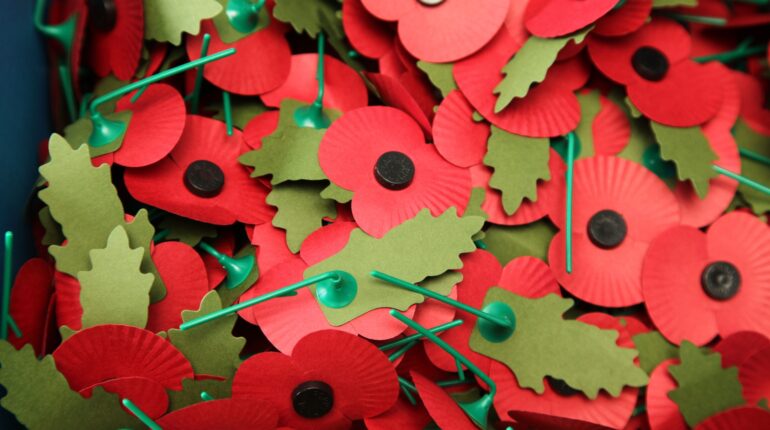Looking to reduce the waste produced by a commemorative day celebrated across the UK, the Royal British Legion embarked upon a three-year journey to replace the traditionally plastic poppies with upcycled paper pins.
Every year in November, 45 million poppy pins are sold in Britain as the nation prepares to celebrate Remembrance Day.
The design we see pinned to the lapels of businessmen, TV presenters, and football pundits annually has remained the same for nearly three decades. The gesture aims to show respect for military personnel who lost their lives during the First World War.
In recent years though, the Royal British Legion has been scrutinised for continuing to make them out of plastic. Though it’s likely many people store their poppies away safely for the coming year, others will not think twice about discarding them.
As a result, the organisation embarked upon a three-year journey to create a new design that is void of plastic. It involved consulting veterans, poppy sellers, and multiple trials of the design’s durability.
Announcing the poppy’s new look, the Royal British Legion says it boasts a carbon footprint that is 40 percent smaller than its previous design. This is also thanks to the paper, which is made up of upcycled material.
























